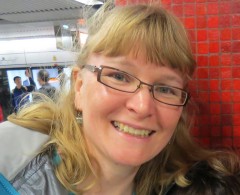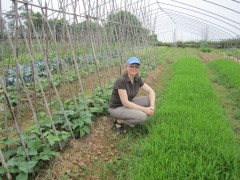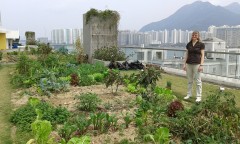by Omar Elsharkawy, CFICE Admin RA
Boundary spanners are integral to the success of community-campus engagement (CCE). At CFICE (Community First: Impacts of Community Engagement), we are lucky to have several boundary spanners on our team. We see boundary spanners as people with the ability to bring together academics, community members, and organizations to work towards a common goal. Not to be confused with a broker, a boundary spanner is heavily invested in both sides of the collaboration and is often directly involved in the project as opposed to acting as an intermediary.
In order to understand more about boundary spanning, I interviewed Dr. Steffanie Scott, associate professor in the Department of Geography & Environmental Management at the University of Waterloo, and a member of CFICE’s Community Food Security Hub. Dr. Scott is a boundary spanner, which can be seen from the many roles she’s taken throughout her career. Her work focuses on international and rural development issues including: land access, ecological farming and rural livelihoods, social justice, and equality. She’s also the past president of the Canadian Association for Food Studies (CAFS), which brings together academics as well as professionals from government and community organizations.
Dr. Scott became convinced of the value of an integrated food system approach, which she later linked to CCE and boundary-spanning, while at the inaugural Food Secure Canada assembly held in Waterloo in 2005. She later became involved with the Waterloo Region Food System Roundtable, a networking and policy-making group working on building a strong voice for a healthy food system in the Waterloo region. Dr. Scott draws on her experience and involvement with the Roundtable, of which she was co-chair from 2007-2011, as an example of her work as a boundary spanner. It’s important to Dr. Scott because of its interdisciplinary and cross-cutting nature. Through her work with the Roundtable, Dr. Scott has been able to collaborate with community and government partners (such as Waterloo Region Public Health) to identify research issues of interest to these food system stakeholders. Dr. Scott says, “I also reached out to Food Secure Canada for their input on relevant research needs as well. As a result, some groups researched issues of food security in Canada’s north, and challenges facing new farmers, which are two of Food Secure Canada’s priority areas.”
In addition to diversifying Dr. Scott’s research and knowledge, her involvement with the Roundtable provides opportunities for students in her 4th year food systems and sustainability course to work on research issues identified by community groups and Roundtable members. According to Dr. Scott, working collaboratively with community groups is particularly beneficial for students. Through her CFICE work, Dr. Scott has seen first-hand how partnerships between students and community organizations teach students about the challenges that community groups face, and how to utilize campus resources, particularly the time and energy of students and faculty, to help tackle these challenges. By going out into the community, students are exposed to different forms of community knowledge, providing them with an alternate perspective from what they usually learn in class. By gaining an understanding of the community perspective, students can apply this new knowledge in class to critically think about the issues facing these organizations. The students then prepared meaningful research reports that were later posted on the Roundtable’s website to be publicly accessed. Some have even been cited in reports by Waterloo Region Public Health.
In CCE, in general, the community partner benefits by having students assist with addressing the needs of the organization. Community-campus partnerships also provide the community organization with an opportunity to expand their network to include a student audience. Students often encourage each other to volunteer and get involved with organizations with which they’ve had a good experience.
In Dr. Scott’s experience as a boundary spanner, she says that the most important requirements for successful community-campus partnerships are trust, and personal connections. Boundary spanners should work towards building trust between both parties. “Personal interest in the collaboration and commitment go a long way as well,” says Dr. Scott. Taking the time to get to know the people involved rather than working on the project itself straight away may not seem so productive, but Dr. Scott says that in the long run this personal relationship enhances the collaboration, ultimately leading to partnerships that last longer and produce more results.
To young people looking to get involved in CCE, Dr. Scott says, “Have an open mind, find out who the movers and shakers are in the community, and connect with them.” Dr. Scott also advises young people and students to get involved, regardless of their experience-level.


